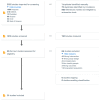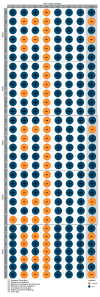The Effect of Plant-Based Protein Ingestion on Athletic Ability in Healthy People-A Bayesian Meta-Analysis with Systematic Review of Randomized Controlled Trials
- PMID: 39203884
- PMCID: PMC11357476
- DOI: 10.3390/nu16162748
The Effect of Plant-Based Protein Ingestion on Athletic Ability in Healthy People-A Bayesian Meta-Analysis with Systematic Review of Randomized Controlled Trials
Abstract
Plant-based protein supplements are increasingly popular, yet their efficacy in enhancing athletic performance compared to animal protein, insect protein, or other protein types remains under investigation. This study aimed to assess the effectiveness of plant-based protein on athletic abilities such as muscle strength, endurance performance, and muscle protein synthesis (MPS) rate and compare it to no- or low-protein ingestion and non-plant protein sources. Randomized controlled trials (RCTs) evaluating the beneficial and harmful effects of plant-based protein ingestion on athletic ability in healthy individuals were considered. A systematic search of six databases yielded 2152 studies, which were screened using the Covidence systematic review tool. Thirty-one studies were included for meta-analysis after independent selection, data extraction, and risk of bias assessment by two reviewers. The meta-analysis employed a Bayesian approach using the Markov chain Monte Carlo (MCMC) method through a random-effects model. The results demonstrated that plant-based protein supplements provided greater benefits for athletic performance in healthy individuals compared to the no- or low-protein ingestion group [μ(SMD): 0.281, 95% CI: 0.159 to 0.412; heterogeneity τ: 0.18, 95% CI: 0.017 to 0.362]. However, when compared to other types of protein, plant-based protein ingestion was less effective in enhancing athletic ability [μ(SMD): -0.119, 95% CI: -0.209 to -0.028; heterogeneity τ: 0.076, 95% CI: 0.003 to 0.192]. A subgroup analysis indicated significant improvements in muscle strength and endurance performance in both young and older individuals consuming plant-based protein compared to those with no- or low-protein ingestion. Nonetheless, other protein types showed greater benefits in muscle strength compared to plant-based protein [μ(SMD): -0.133, 95% CI: -0.235 to -0.034; heterogeneity τ: 0.086, 95% CI: 0.004 to 0.214]. In conclusion, while plant-based protein ingestion demonstrates superior efficacy compared to low- or no-protein ingestion, it is not as effective as other protein types such as whey, beef, or milk protein in enhancing athletic performance in healthy individuals. Registration: Registered at the International Prospective Register of Systematic Reviews (PROSPERO) (identification code CRD42024555804).
Keywords: athletic performance; endurance ability; macronutrients; muscle protein synthesis; muscle strength; plant-based protein.
Conflict of interest statement
The authors declare no conflicts of interest.
Figures




















Similar articles
-
Folic acid supplementation and malaria susceptibility and severity among people taking antifolate antimalarial drugs in endemic areas.Cochrane Database Syst Rev. 2022 Feb 1;2(2022):CD014217. doi: 10.1002/14651858.CD014217. Cochrane Database Syst Rev. 2022. PMID: 36321557 Free PMC article.
-
Effects of Sodium Bicarbonate Supplementation on Muscular Strength and Endurance: A Systematic Review and Meta-analysis.Sports Med. 2020 Jul;50(7):1361-1375. doi: 10.1007/s40279-020-01275-y. Sports Med. 2020. PMID: 32096113
-
Effect of respiratory muscle training on exercise performance in healthy individuals: a systematic review and meta-analysis.Sports Med. 2012 Aug 1;42(8):707-24. doi: 10.1007/BF03262290. Sports Med. 2012. PMID: 22765281 Review.
-
Effects of protein in combination with carbohydrate supplements on acute or repeat endurance exercise performance: a systematic review.Sports Med. 2014 Apr;44(4):535-50. doi: 10.1007/s40279-013-0133-y. Sports Med. 2014. PMID: 24343835 Review.
-
Effects of HMB on Endurance Performance in a Healthy Population: A Systematic Review and Meta-Analysis.J Strength Cond Res. 2024 Apr 1;38(4):e202-e210. doi: 10.1519/JSC.0000000000004690. Epub 2023 Dec 13. J Strength Cond Res. 2024. PMID: 38090973
References
-
- National Strength & Conditioning Association (U.S.)Campbell B.I., Spano M.A., editors. NSCA’s Guide to Sport and Exercise Nutrition. Human Kinetics; Champaign, IL, USA: 2011. (Science of Strength and Conditioning Series).
-
- Haub M.D., Wells A.M., Campbell W.W. Beef and Soy-Based Food Supplements Differentially Affect Serum Lipoprotein-Lipid Profiles Because of Changes in Carbohydrate Intake and Novel Nutrient Intake Ratios in Older Men Who Resistive-Train. Metabolism. 2005;54:769–774. doi: 10.1016/j.metabol.2005.01.019. - DOI - PubMed
-
- Lynch H.M., Buman M.P., Dickinson J.M., Ransdell L.B., Johnston C.S., Wharton C.M. No Significant Differences in Muscle Growth and Strength Development When Consuming Soy and Whey Protein Supplements Matched for Leuine Following a 12 Week Resistance Training Program in Men and Women: A Randomized Trial. Int. J. Environ. Res. Public Health. 2020;17:3871. doi: 10.3390/ijerph17113871. - DOI - PMC - PubMed
Publication types
MeSH terms
Substances
Grants and funding
LinkOut - more resources
Full Text Sources
Medical
Research Materials


